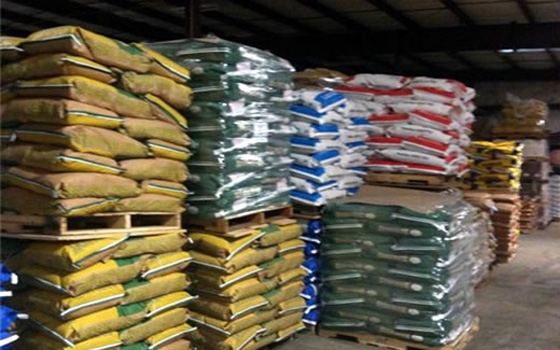More than 2.4 million tons of livestock forage will be imported into Saudi Arabia annually by 2016 if it is to keep up with the Kingdom's booming dairy and poultry industries, a leading agriculture expert from the Gulf country said recently.
John Lawton, General Manager of the Agricultural Technology Company in Saudi Arabia, said that when it comes to output and efficiency, Saudi's dairy industry is among the world's best, making it a major exporter of dairy derivative products to neighboring Gulf and Middle East countries.
"This export has led the Saudi government to insist that for every liter of milk exported from the Kingdom, an equivalent amount of one kilogram of livestock forage is imported," said Lawton. "Already this has significantly increased the importation of alfalfa and other baled forages into Saudi, which has in turn released arable land for the production of other crops."
Business Monitor International said earlier milk production in Saudi Arabia will grow by 27 percent by 2016, reaching 2.4 million tons. The Kingdom is home to some of the most advanced dairy farms in the world, with the world's largest vertically integrated dairy company, Almarai a leading example of cutting edge technology in harsh desert climates.
Lawton said that the poultry industry in Saudi is also expanding, with Almarai again leading the charge, as poultry consumption in the Kingdom is expected to increase by 14 percent by 2016, reaching 1.6 million tons.
He added: "In just over 30 years, Saudi Arabia has developed an agricultural base which can produce very significant percentages of the whole population's crops, and in some cases, 100 percent such as dairy, eggs, potato and other specialized crops."
"The whole of agriculture in the country, and in other parts of the MENA region is a classic example of how the undeveloped desert areas can be developed with modern technology and efficient irrigation systems."
While Saudi's dairy and poultry industries continue to expand, its grain industry will soon be completely phased out. Since 2007, wheat production has fallen by 12 percent annually, and will be eliminated by 2016. BMI predicts that 2.3 million tons of wheat will be imported into Saudi in 2013, up 80 percent from the level seen in 2008.
"In many ways, because water-intensive crops, including wheat and cereal grains are not encouraged in the long term, the focus has been shifted toward animal production," continued Lawton. "This is why the dairy and poultry sectors in the Kingdom are booming."
Press release
21 February
























































